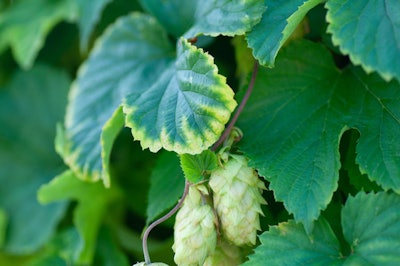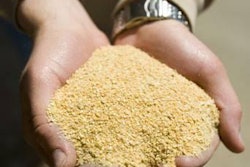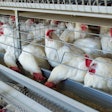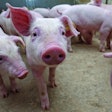
Long-term trials find hops do not serve as an antibiotic alternative in ruminants
Hops may exhibit certain antibacterial properties, but it doesn’t imbue alternative antibiotic benefits in animal feed, according to recent long-term trials examining hops’ impact on rumen fermentation.
Hops are known to have certain bacteriostatic properties — that is, they prevent bacteria from reproducing. And early research suggested hops could affect rumen fermentation, suggesting they might serve as a useful feed additive in place of antibiotics.
But recent long-term trials, published in Animal Feed Science and Technology, suggests that the impact of hop flower-derived acids on ruminant digestion decrease rapidly with time.
“We were very surprised that there were pretty minimal effects,” said Isaac Salfer, an assistant professor of dairy science at South Dakota State University and the lead author on this February’s paper. “We saw some slight changes in rumen pH. But nothing in terms of what we were expecting.”
It’s not entirely clear why the hop acids did not perform as expected. Previous trials had demonstrated that hop extracts have direct effects on rumen fermentation — at least in the short term. Salfer believes that the rumen may adapt to the hop acids over time, gradually negating their effect.
Rumen microbes, he said, “adapt to these hop acids and will compensate. So it might kill some species, but overall species adapt or develop resistance.” So in the short term, the hops appear to imbue antibiotic-like affects in ruminants, but the results don’t last.
This result does suggest that hops are out as the search for an alternative that might replace growth-promoting antibiotics in animal feed continues. But there remain other options that hold promise as research continues, Salfer said, such as oregano and capsicum extracts.
“The issue is they all seem to be less effective than the current standard on the market, which is an antibiotic,” he said, “but they are effective.”
With speculation about the promise of antibiotic alternatives on the rise, Salfer suggested producers investigate the scientific literature — or work with a consultant who can — to vet products before making a purchase.
“A lot of these, the mechanisms seem like it should make sense, and in theory they work,” he said. “But when you test them in live incubation, they don’t work, because the microbiome adapts.”















